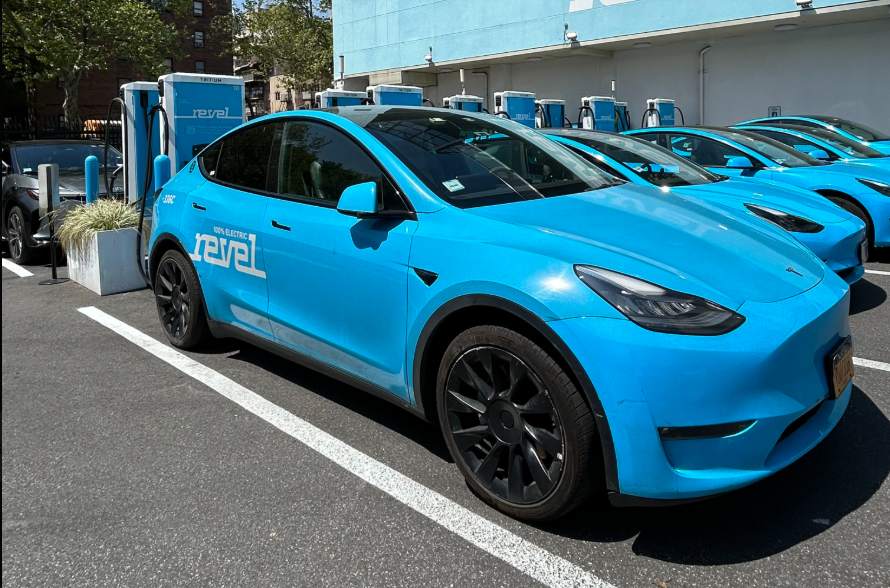Revel, known for its bright blue electric vehicles, shut down its rideshare service in New York City on August 11 to focus entirely on expanding its electric vehicle (EV) charging infrastructure. The company operated its rideshare service for four years before making this strategic shift.
“We have made the difficult decision that the best way we can keep the EV transition moving forward is by ending our rideshare service and focusing on building the fast charging infrastructure our biggest cities need to keep going electric,” said Frank Reig, co-founder and CEO of Revel.
The Brooklyn-based company faces a significant transition as it sells or returns its fleet of approximately 500 blue Tesla and Kia electric vehicles. Revel also plans to sell its 165 for-hire vehicle license plates, which are valued between $20,000 and $25,000 each according to Reig.
This pivot comes after Revel shifted from a salaried driver model to independent contractors in June 2024 as demand declined. According to AutoMarketplace, the company ended its vehicle rental agreement with Hertz in April 2025.
The move affects 80 workers who will lose their jobs as part of the transition, according to company spokesman Jake Potent.
Despite being the first all-electric rideshare company in NYC, Revel struggled to compete with industry giants Uber and Lyft. While Revel averaged about 100,000 rides per month, Uber and Lyft complete more than 20 million trips monthly in New York City.
Revel currently operates 100 chargers across five stations in New York City and one in San Francisco. The company has ambitious plans to expand its charging network to 400 charging stalls by the end of 2026 and reach 2,000 stalls by 2030 across markets including New York City, Los Angeles, and San Francisco.
Similar Posts
A partnership with Uber formed in 2024 has already boosted charger utilization rates from 18% in early 2023 to 45% in early 2025. Under this agreement, Uber drivers receive discounted rates at Revel charging stations.
“Uber and Lyft are electrifying fast and they’re providing a ton of utilization for our chargers on a much larger scale than even two or three years ago,” Reig noted.
This marks the latest pivot for Revel, which began in 2018 as a small Brooklyn moped rental service with just 68 mopeds. The company later expanded its moped fleet to over 1,000 in New York City. The company ended its moped rental business in 2023 following safety concerns and declining demand.
While Revel as a whole has yet to achieve profitability, the company reports that its individual charging sites are already profitable. Approximately 70% of its charging customers are rideshare drivers.
By focusing solely on charging infrastructure, Revel transforms from a competitor to a partner with rideshare giants, creating a more sustainable business model in the evolving urban mobility landscape.



















